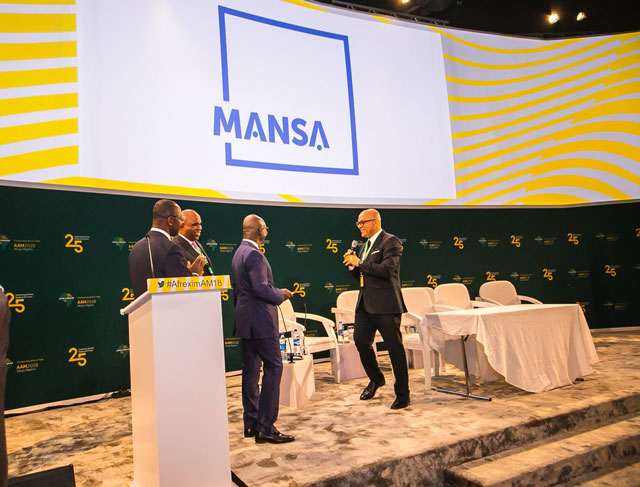
Failure to submit and update relevant documents risks making the platform irrelevant
Kampala, Uganda | ISAAC KHISA | Despite the fact that Africa continues to receive high levels of interest as an investment destination from investors across the globe, access to data remains a big challenge to enable them make final investment decisions.
As such, a Cairo-based lender, the African Export-Import Bank (Afreximbank) has unveiled its new customer due diligence (CDD) platform, called Mansa, which seeks to provide a single source of primary data required for prospective investors and banks to conduct CDD and know your customer (KYC) checks on counterparties in Africa.
George Elombi, the bank’s executive vice president for governance, legal and corporate services, said the new platform will make it easier and more cost-effective for African businesses, large and small, to be on boarded by financial institutions.
He said the bank hopes to “end the subjective evaluation of customers and eliminate the perceived, and often unfair, risk in trading with African counterparties.”
He said the entities set to use the platform are either contributors – African financial institutions (FIs), corporate or SMEs who will upload their information to the repository using standardised KYC templates, or users, specifically financial institutions that provide banking facilities and are looking for information on a particular company.
“For every client that provides some information about their company some degree of validation is done before that is taken onto the platform,” Elombi said on the side-lines of the just concluded 25 th Anniversary and Annual General Meeting held in Abuja, Nigeria on July 11-14.
“Care has been taken, but obviously it’s not going to be 100% sound proof – there will be some slippages. But these are the steps we have taken.”
Maureen Mba, the associate director compliance at Afreximbank said firms are currently free to join the platform, and that it will remain so, for a year.
Thereafter, and the bank is “attracting enough customers on the platform”, it will introduce fees based on different categories of use.
Benedict Oramah, the President and Chairman of the Afreximbank, said the goal of Mansa is to facilitate access to information necessary for conducting KYC, anti-money laundering and counter terrorism valuations thereby reducing compliance costs with respect to African trade and project finance costs.
“Our new Mansa platform is a natural extension of Afreximbank’s mission to expand, develop and diversify African trade. Mansa will enhance African trade by enabling the efficient on-boarding of customer’s whilst reducing both operational workloads and the costs of compliance by counterparts,” he said.
He said the new digital service is a win-win for all participants, contributors, subscribers, national and international partners advocating for good governance.
Commenting on the new development, Louis Kasekende, the deputy governor, Bank of Uganda, told The Independent in an interview that the new platform will ensure that banks do not deal with sanctioned entity.
“If one is able to check who he or she is dealing with online, then, one is able to know the other party that he or she is dealing with and that is how it is going to help Small and Medium Enterprises in accessing finances,” he said.
He said the platform will also help financial institutions ensure that they do not deal with UN or US sanctioned parties.
Challenges that lies ahead
A section of banks and exporters, though welcomed the initiative, cautioned that its success would depend on industry support and the accuracy and validity of the information it provides.
“I think Mansa has the potential to help fill the information gap that many consider to be at the heart of the wider trade finance gap,” Duarte Pedreira, the head of trade finance at Crown Agents Bank, told Global Trade Review.
However, he added, “the devil is always in the detail”. For one, platforms only work as much as the involved parties allow them to.
“So, if banks and corporates do submit and update their relevant KYC/CDD documents in Mansa, then the platform will be as relevant as it can be,” Pedreira said.
But if they don’t, the platform risks becoming “yet another empty channel that never materialised its potential”.
The platform is named after Mansa Musa, the powerful ruler of the West African Malian Empire in the 1300s who was responsible for placing Africa on the map and opening up trade across Africa by establishing Timbuktu as his commercial hub.
Trade volumes
Meanwhile, Afreximbank released its 2018 Africa trade report that showed that trade deficit narrowed to $96.9 billion last year compared with $132.5 billion in the previous year.
Exports increased to $405.3 billion in 2017 from $344 billion a year earlier, while imports advanced to $502.3 billion from $476.6 billion.
The report also notes that whereas Africa’s trade with the rest of the world expanded 11% to $907.6
billion last year, the portion of trade within the continent declined to 14 % of the total.
South Africa, Namibia and Nigeria accounted for more than 35 % of intra-Africa trade last year.
South Africa contributed a quarter of the region’s domestic commerce in 2017, mostly in oil imports
from Nigeria and Angola.
The report, however, notes that if African Continental Free Trade Area (AfCTA) is implemented on
time, the intra-Africa trade could increase by at least 50% in the next four years.
 The Independent Uganda: You get the Truth we Pay the Price
The Independent Uganda: You get the Truth we Pay the Price





